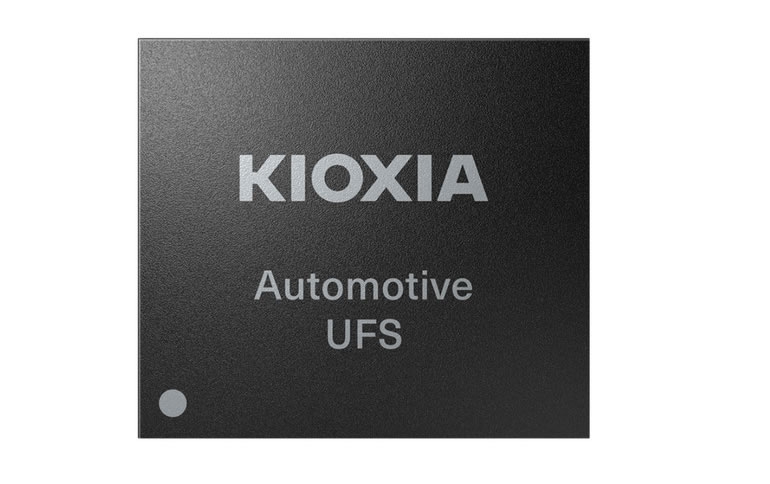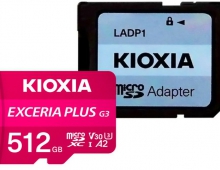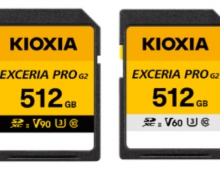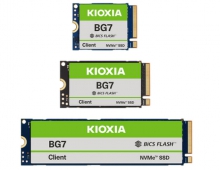
Kioxia Introduces UFS Ver. 3.1 Embedded Flash Memory Devices for Automotive Applications
Kioxia Corporation, a world leader in memory solutions, today announced that it has started sampling[1] new Automotive Universal Flash Storage[2] (UFS) Ver. 3.1 embedded flash memory devices. The new line-up utilizes the company’s BiCS FLASH™ 3D flash memory and is available in capacities from 64 gigabytes (GB) to 512GB to support the various requirements of evolving automotive applications that elevate driver experiences.
The storage requirement for automotive applications continue to increase as infotainment systems and ADAS[3] in cars become more sophisticated. UFS is well-suited to support the high-performance and density needs of these applications. The new devices support a wide temperature range (-40°C to +105°C), meet AEC[4]-Q100 Grade2 requirements and offer enhanced reliability capabilities that increasingly complex automotive applications require.
The sequential read and write performance of the Automotive UFS Ver. 3.1 device is significantly improved by approximately 2.2x and 6x respectively, over previous generation devices[5]. These performance gains contribute to faster system startup and OTA (Over-the-Air) updates.
Notes
[1] Sample shipments of the 256GB, 128GB and 64GB devices will start from March 30th, with the 512GB device to follow in April.
[2] Universal Flash Storage (UFS) is a product category for a class of embedded memory products built to the JEDEC UFS standard specification. Due to its serial interface, UFS supports full duplexing, which enables both concurrent reading and writing between the host processor and UFS device.
[3] Advanced Driving Assistant System
[4] Electrical component qualification requirements defined by the AEC (Automotive Electronics Council).
[5] Kioxia Corporation’s previous generation 512GB device “THGAFBT2T83BABI”
Read and write speeds are the best values obtained in a specific test environment at Kioxia Corporation and Kioxia Corporation warrant neither read nor write speeds in individual devices. Read and write speed may vary depending on a device used and file size read or written.
In every mention of a Kioxia product: Product density is identified based on the density of memory chip(s) within the Product, not the amount of memory capacity available for data storage by the end user. Consumer-usable capacity will be less due to overhead data areas, formatting, bad blocks, and other constraints, and may also vary based on the host device and application. For details, please refer to applicable product specifications. The definition of 1KB = 2^10 bytes = 1,024 bytes. The definition of 1Gb = 2^30 bits = 1,073,741,824 bits. The definition of 1GB = 2^30 bytes = 1,073,741,824 bytes. 1Tb = 2^40 bits = 1,099,511,627,776 bits.





















